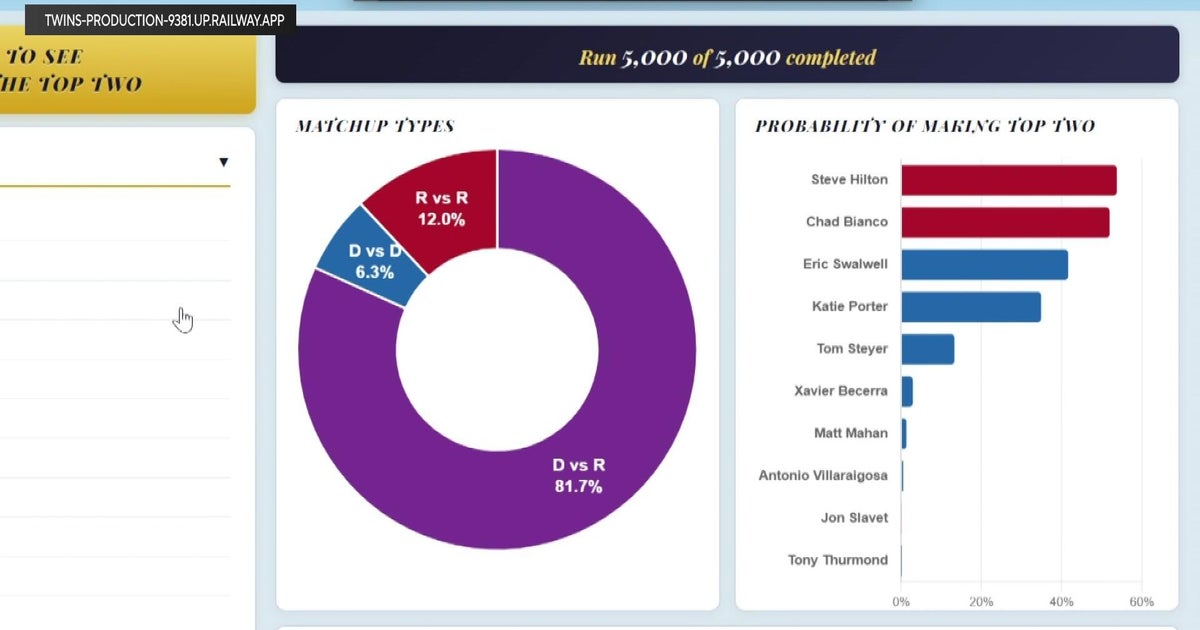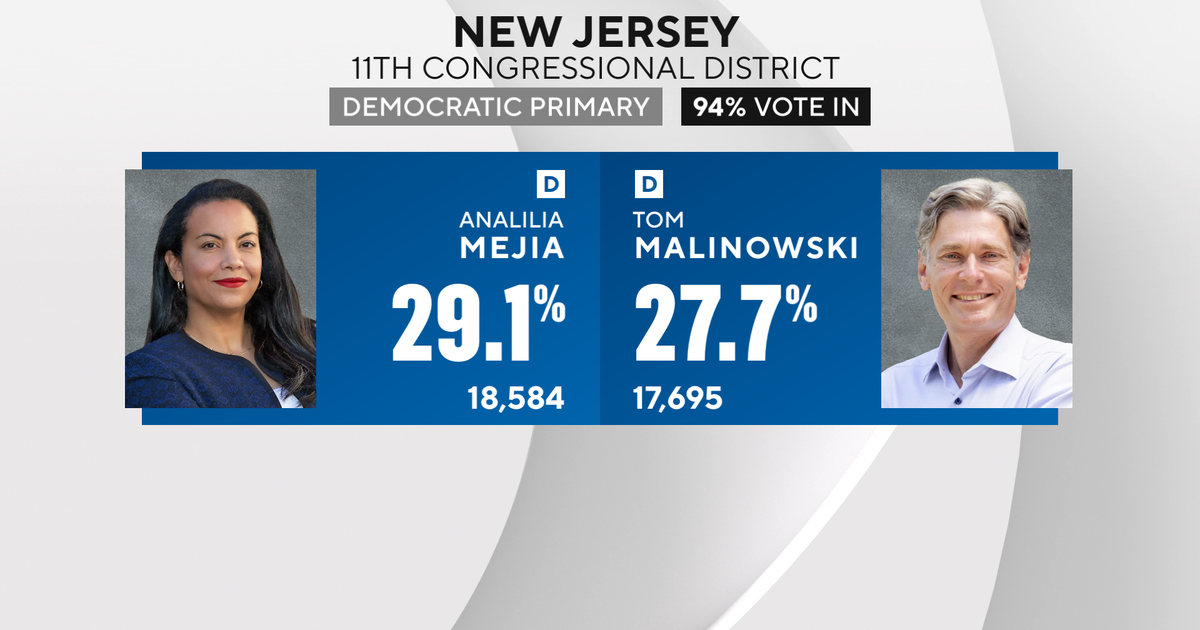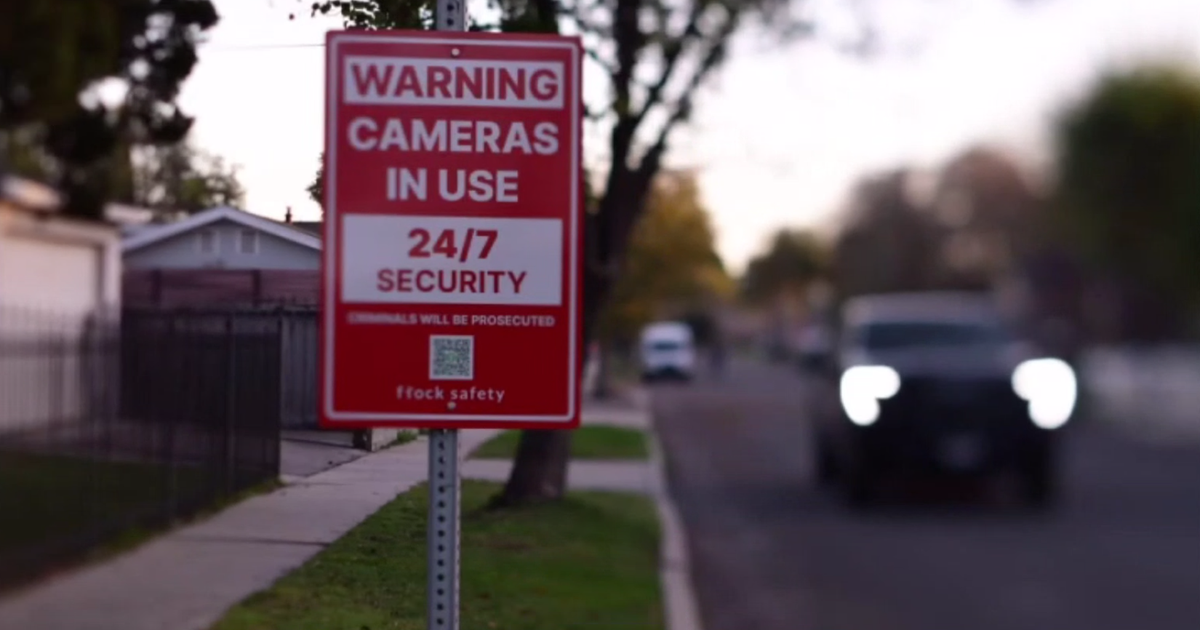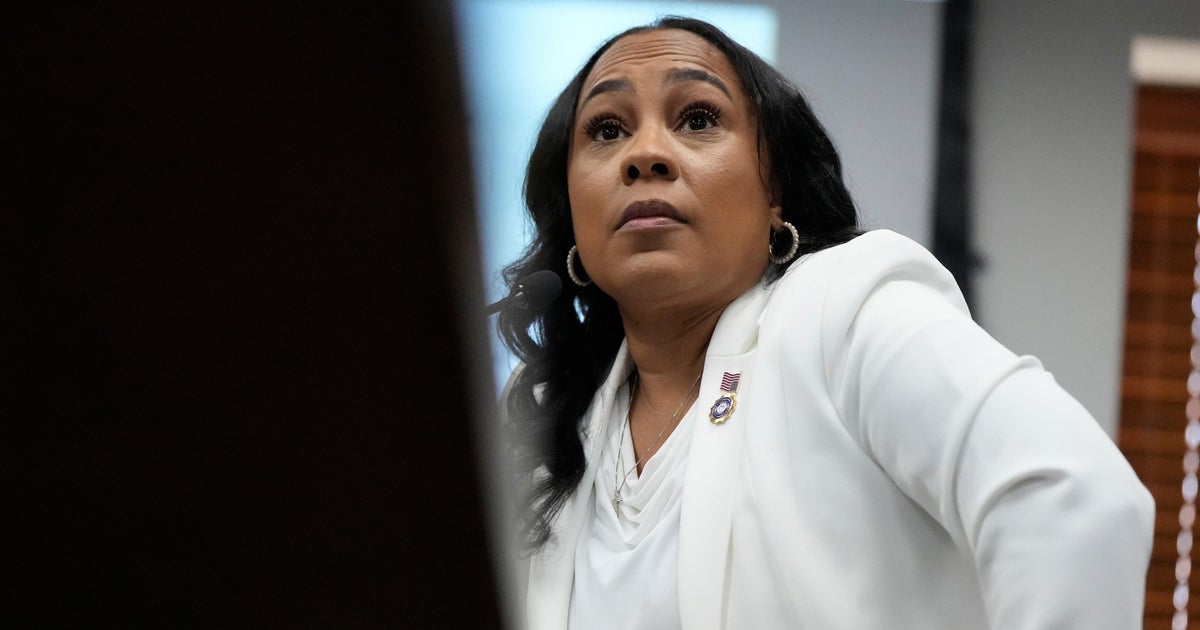US Rep. Conyers Faces Rare Mich. Primary Challenge
DETROIT (AP) - In a congressional career that has spanned nearly a half-century, John Conyers is no stranger to fending off re-election challenges. However, they usually come in the fall, not the summer.
While the Michigan Democrat who ranks second in seniority in the U.S. House remains a heavy favorite for a 25th term, his path back to Washington could be a little bumpier this time. He faces a reconfigured district that even has a different number, and that uncertainty has drawn four challengers for the Aug. 7 primary - two of whom have raised enough money to at least get their messages out.
Like the 14th District he represented for decades, the 13th Conyers is seeking now should be an easy win for Democrats in the November general election. Conyers brushes off the fact that he faces a rare primary challenge, pointing out that if there is anti-incumbent sentiment this year, his Democratic foes are likely to split that vote.
"I don't know what would be different," said Conyers, 83. "From what we can tell, we have a pretty strong record of accomplishments. Besides, they all are running against each other as well."
State Sens. Glen Anderson of Westland and Bert Johnson of Highland Park, Detroit Rep. Shanelle Jackson and John Goci, a restaurant owner and vice president of the Wayne-Westland School Board also are on the Democratic ballot. Harry Sawicki is unopposed in the Republican primary.
Although some long-term incumbents in Congress usually cruise to re-election unopposed every two years, Conyers almost always faces - but tramples - opposition.
The 77 percent he received in the 2010 general election was the lowest total of his 47-year congressional career, and it came at a time Republicans swept offices across the state, including Rick Snyder's election as governor. The election also came just two months after Conyers' wife reported to prison to begin a three-year sentence for corruption.
Not since 1994 has Conyers faced even a slight scare in the Democratic primary. That year, Detroit attorney Melvin Hollowell received 28 percent of the votes, still heavily trailing Conyers' 51 percent.
"I don't think he's vulnerable," said Daniel Cherrin, a public affairs executive who served as spokesman for former Detroit Mayor Ken Cockrel Jr. "I think people look highly on the congressman. Even if they could outspend the congressman, they would still have trouble overcoming his name recognition."
Balita Buckner, 37, of Wayne County, said Conyers is the only candidate on the ballot she knows.
"I haven't seen any literature from any of the other candidates," she said. "I don't know anything about them."
Besides name recognition, Conyers as expected has enjoyed a sizable fundraising lead by pulling in $708,000 through June 30, according to the nonprofit Michigan Campaign Finance Network. However, Anderson has fared better than a typical primary challenger to a long-term congressman, raising $212,000 in the same period. Johnson has raised $84,500, and the other two have reported little campaign money.
The two leading candidates have almost the same amount left to spend going forward: $141,900 for Conyers compared to $137,000 for Anderson.
Anderson said what's fueling his campaign is the perception in Michigan that Conyers hasn't spent enough time in recent years with constituents.
"They are looking for different answers and different leadership and people willing to work hard," said Anderson, who spent six years in Michigan's House and the past five and a half in the state Senate. "People want jobs. They want security. They want to be able to know they are going to come home and their house is not going to be cleaned out."
Johnson said the congressman has "really lost touch with the citizens." Jackson, 32, points out Conyers has spent 15 more years in Washington that she has been alive.
Michigan is losing a congressional seat after seeing its population decline in the 2010 census. Republicans redrew maps that allow them to keep the nine districts they hold while shrinking the number of Democratic districts from six to five.
Before redistricting, the 14th District included northwest Detroit, and inner ring suburbs downriver and west of the city. Highland Park and Hamtramck, small cities surrounded by Detroit, also were part of the district.
Parts of the redrawn 14th District are more upper middle-class, while the 13th District is more blue-collar. Jackson says the whole area has changed while the congressman hasn't much.
"I think the demographic has changed," said Jackson, who has spent the past six years in the state House. "The needs of the community have changed, and really the voice of the community is different. I recognize he loves Detroit and he loves Michigan, but I think he's out of touch with the reality of this district and what we need and who we are."
The 13th, like much of Michigan, continues to face job losses, unemployment higher than the national average and rampant home foreclosures.
"You get a job and you have to spend four hours on a bus (to get there) - and that's if the bus shows up," said Goci, 42. "We have to give people in Detroit, my neighbors, an opportunity to help themselves."
Sheila Cockrel, political history instructor at Wayne State University and former Detroit City councilwoman, said Anderson could pull strong support in western Wayne County, but Conyers may have a secret weapon with "regular folks": the vocal stand against the role banks played in the nation's mortgage collapse.
Conyers has stressed that job-creation is still at the top of his agenda, and he's seeking infrastructure improvements, grants for small businesses and other creative approaches to put people back to work.
"Our theoretical goal is nobody who wants to work in America is unemployed," Conyers said.
© Copyright 2012 The Associated Press. All Rights Reserved. This material may not be published, broadcast, rewritten or redistributed.







